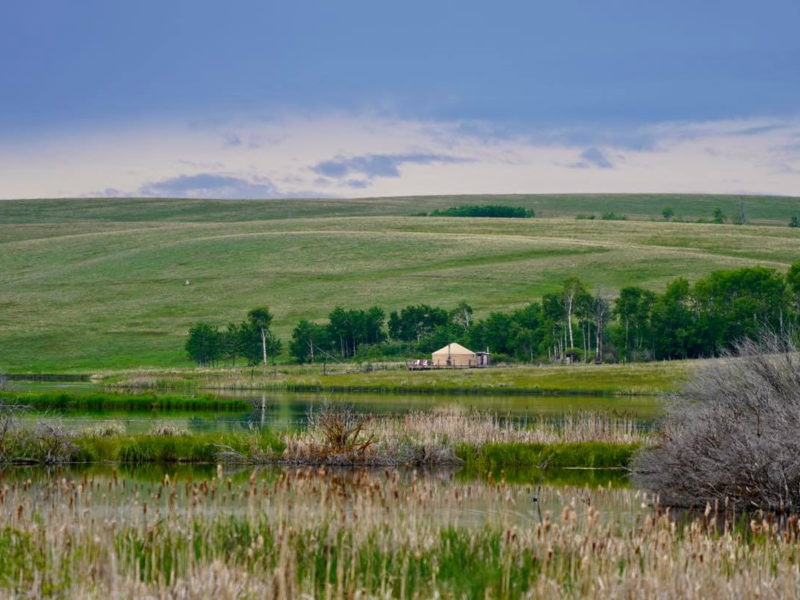VANCOUVER – The BC Court of Appeal has sided with Douglas Lake Cattle Co., overturning an earlier ruling granting recreational fishers access to Minnie and Stoney Lakes.
The new judgment also firmly rejects claims of any public right to cross private lands to access Crown property in BC, often termed “right to roam.”
This case has been followed closely by the BC Cattlemen’s Association whose members are often impacted by the public trespassing on their private land.
“We are, of course, very happy with this decision,” says BCCA assistant general manager Elaine Stovin. “[But] this case is important to all farmers and anyone who owns land.”
Stovin says that it’s frustrating that the popular press has frequently framed the issue as a David-and-Goliath story with recreational users being pitted against US real estate and sports magnate Stanley Kroenke.
“It’s not just about the largest ranch in British Columbia. We have many members who have small holdings and all farmers have issues with liability, environmental responsibility, fire danger and biosecurity when people trespass on their land,” she says.
BC Supreme Court Justice Joel Groves ruled in 2018 that Nicola Valley Fish and Game Club members could access two lakes situated within the Douglas Lake Ranch northeast of Merritt. Groves found that there was evidence of both public road and historic trail access to the lakes, which are Crown waters, and ruled that DLCC could not restrict fishermen from using the lakes.
DLCC appealed.
On March 5, BC appeals court Justice Peter Willcock ruled that the trail was not a public right of way, and that the public road did not reach the shore of either lake.
BCCA was granted intervenor status in the case and presented on two parts of this issue. The first consideration was whether the public can cross flooded private land against the wishes of the private landowner in order to access ‘public’ bodies of water for recreational purposes.
“This was in reference to the Trespass Act,” explains Stovin. “The BC act is the only one in Canada that specifically mentions trespass on flooded lands.” Justice Willcock agreed and deemed the flooded land to be owned by DLCC, not the province.
“In my view, by issuing a fishing licence, regulating fishing or managing water resources, the Province does not exercise such control over activities on flooded lands as to be an occupier of those lands as that term is defined in the Trespass Act,” he wrote in his decision.
The second issue was whether or not a public right existed to cross private land to access the Crown waters of the lake on account of a “common law right of access”
“This is the ‘right to roam’ concept that people talk about which has never previously been recognized in British Columbia legislation,” says Stovin. “There were two private member bills introduced in the BC legislature in 2017 but neither went past first reading.”
Willcock’s judgment says the popular notion of a “right to roam” in BC has no legal basis, even if – as in the Douglas Lake case – it’s to access a lake on land reserved to the Crown for the benefit of the public.
“In my view, while this argument may attract considerable public support, it has no support in our law,” Willcock writes. “Unlike other jurisdictions, British Columbia does not have public access legislation.”
The result was a victory for Douglas Lake.
“In conclusion, it is my opinion that DLCC is entitled to restrict access to Minnie Lake and Stoney Lake and the Club has no statutory or common law right to cross DLCC’s property, whether it is flooded or not, to access the lakes.”
In his 2018 ruling, Groves also ruled that DLCC should pay the costs of the trial, particularly because the Nicola Valley Fish and Game Club was acting “in the public interest.”
Willcock reversed that decision and ordered each party to pay their own costs of the 2018 trial. Since Douglas Lake had “substantially” won the appeal, Willcock also ordered the club to pay the full costs of the appeal.
However, the matter is not over. The Nicola Valley Fish and Game Club is reportedly planning to take its fight to the Supreme Court of Canada


 Province reveals abattoir changes
Province reveals abattoir changes